#feminist cinema
Text

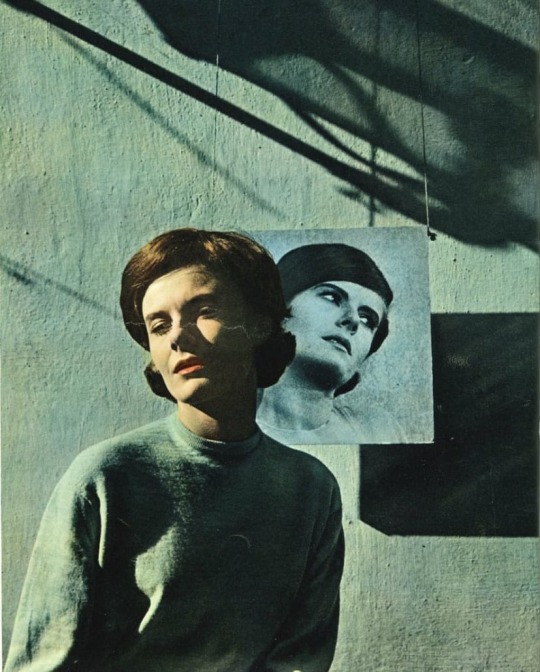

Delphine Seyrig by Agnès Varda, 1962
#delphine seyrig#agnes varda#1960s#1960s photography#1960s style#1960s aesthetic#french cinema#cinema francais#french new wave#nouvelle vague#female filmmakers#feminist cinema#women’s cinema#last year at marienbad#cinema#film
464 notes
·
View notes
Text

Egami (1985), dir. Sue Ford
#Egami#Sue Ford#80s#short film#experimental film#feminist cinema#women make movies#australian cinema
111 notes
·
View notes
Text
something that strikes me about joyland vs many other films centering trans women, is that biba’s story is one that interweaves with various cisgender women -- while it does have scenes showing her community, which is notably a place she is happy and safe and able to let her guard down, her actual story stands in comparison to other cis women, who likewise are comparable to each other. she’s not the “othered” woman to their “normative” woman, she’s a woman, whose perspective is relevant to a story largely about women
the part where her being transgender is important (and it is important!), is that she has taken the necessary steps in life to be freely herself, and this has come at great cost, but it’s also working. she knows the pain that comes with that and we see a lot of it in the movie itself, but she’s definitely also got the joy that comes from a certain kind of freedom (the freedom of creating a new reality after everything is gone)
so in that sense, the main contrast of her as “trans woman” to their “non-trans woman,” is that it’s given her the opportunity for joy precisely because the margins -- once everything has perceivably been lost -- is where that joy is to be created, whereas the other women whose stories we see are clinging to what scraps they have. they aren’t happy, not because they’re women, but because the little bits that they do have in the society in which they function, are things they’re too afraid to lose to stand up for what they want
nucchi at first appears to be happy as a housewife, desperate to produce a son, but she gets stripped away, bit by bit, merely as someone who can tolerate the role she has. she studied to be an interior designer, I believe it was, and it makes perfect sense, once she shares that piece of information with mumtaz. she comes into focus -- and then she’s the one who suggests that she and mumtaz leave the house together (gasp) to go to the amusement park, for their One Good Day
and mumtaz you simply see deteriorate, until she’s on the verge of doing the one thing that might help -- running away -- and then cannot go through with it. I think at least one of the reasons is that she’s wondering if maybe she can do this after all, if maybe once she tells haider that she’s pregnant something will open up, but instead the future closes in and in and in. she doesn’t manage to grab that one sliver of freedom she had (and it would have come with so much pain), and the ending starts careening at the viewer from that point onwards
the second-to-last scene, where you see haider and mumtaz talk prior to their wedding is just... oof. ouch. mumtaz :( me, sitting in this movie screaming at the screen to just get her the damned air-conditioners she wanted, at least! one thing!
and then lastly the neighbouring woman, who at first presents herself as all about that propriety, and who you then realise is at the end of what this journey is going to be. no longer useful, only a ghost, not even allowed to leave the house, and there’s no way she’ll do anything but accept this, even as she feels, deep down, there’s some way to have joy, and she even briefly offers a small fight for it, before she accepts her fate anew
in the face of all of this, biba’s is the story with the most hope, presenting out and proud transness as a gift rather than a burden that must be borne because nothing else is possible, as it often is. biba is not in a society where she’s safe, or accepted, or respected -- hell, she’s clearly the least privileged person we follow in this film -- but she is free
#joyland#im watching joyland#im watching movies#im watching queer movies#haider... you really fucked up....#queer stuff#queer cinema#queer movies#trans cinema#feminist cinema#parts of this film also reminded me of mustang which fuckn made me bawl
214 notes
·
View notes
Text

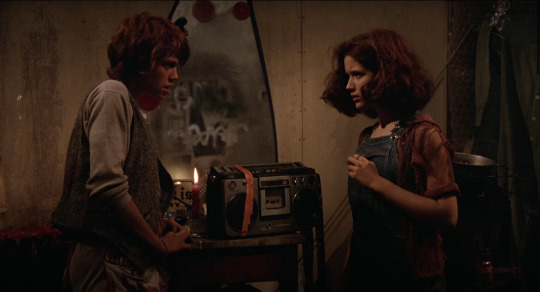
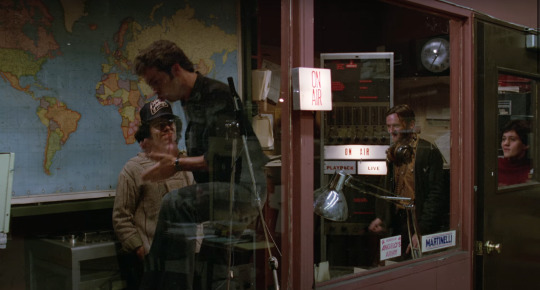
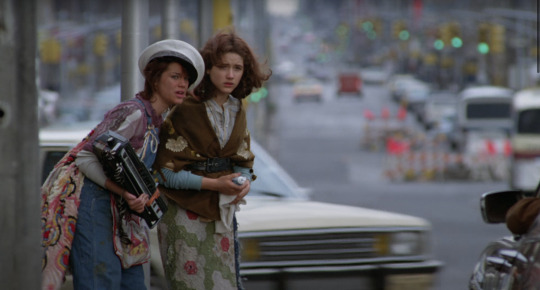
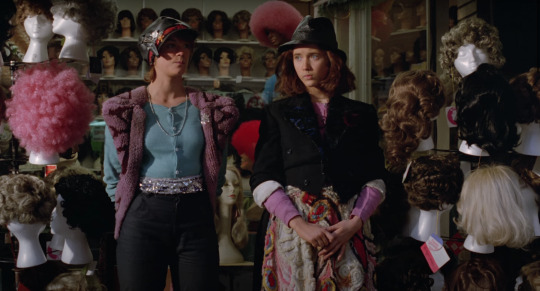
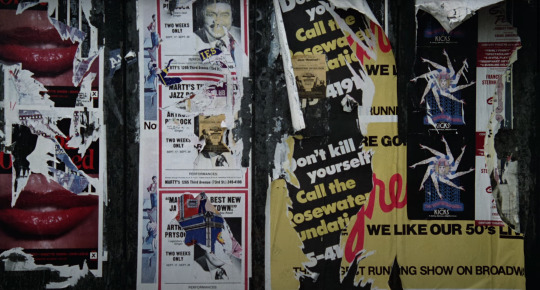

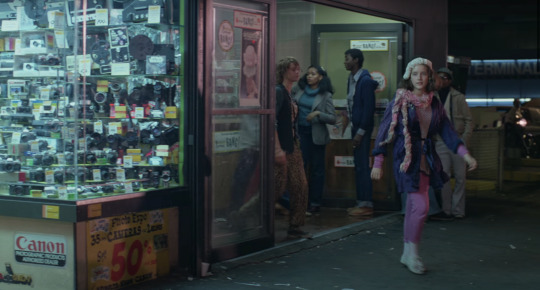
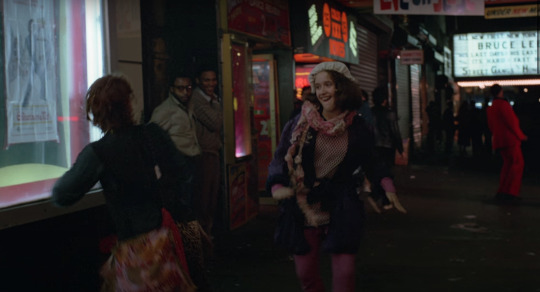

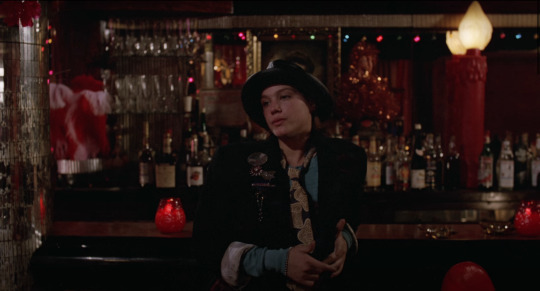


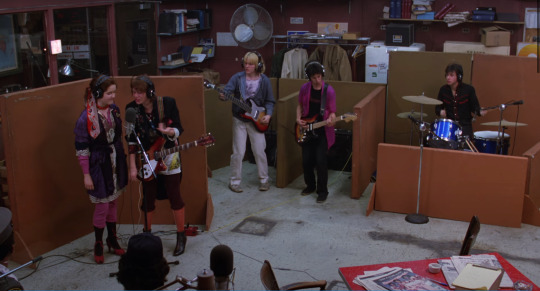
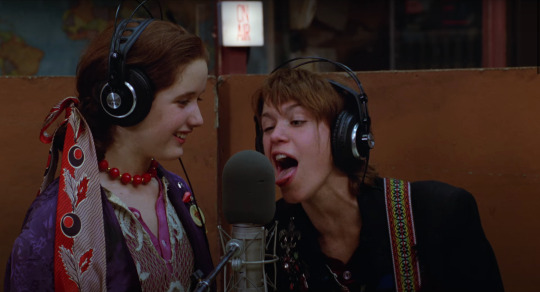
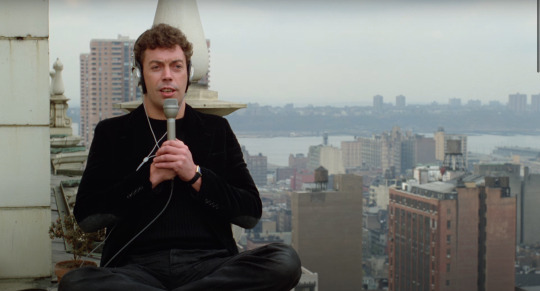



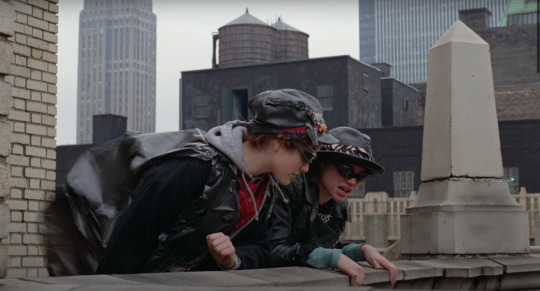




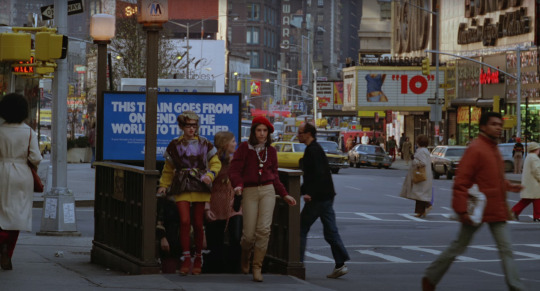
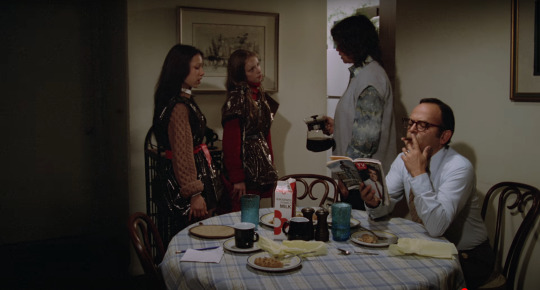
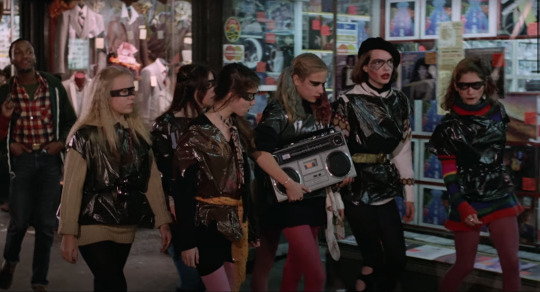

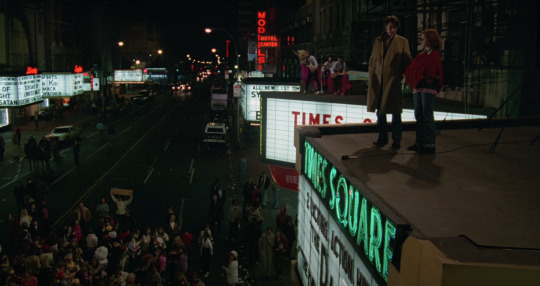
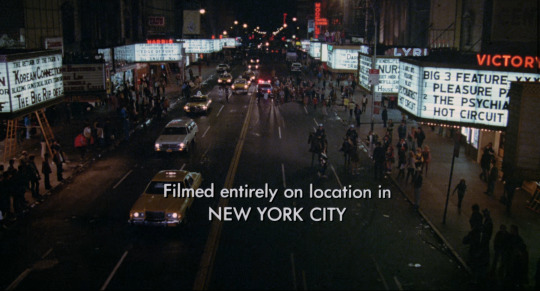
Times Square (1980)
Director: Allan Moyle
Cinematographer: Jacob Brackman
Starring: Tim Curry, Robin Johnson, and Trini Alvarado
#times square#1980#tim curry#riot grrrl#queer film#cult classic#punk rock#punk cinema#robin johnson#trini alvarado#80s films#riot grrrl films#new york films#feminist cinema#cult film#80s cinema#80s movies#new york#vintage new york#vintage nyc#nyc#radio#disc jockey#queer cinema#classic film#80s fashion#80s aesthetic#80s film#rock films#rock cinema
52 notes
·
View notes
Text



MS .45 (1981)
#Ms. 45#Abel Ferrara#Zoë Tamerlis#cinema#exploitation#exploitation cinema#thriller#80s#80s cinema#film#aesthetic#it girl#feminist cinema#psychosexual
27 notes
·
View notes
Text
My husband doesn't see why I insist thay Legally Blonde is a valid feminist movie, especially if you take it in the context of the late 20th Century flood of "dumb blonde bombshell" films. He's also never seen it.
Guess what we're doing today.
Edit: lol, I know the movie came out in 2001. But the wave of bombshell movies that I remember was mostly late 20th century.
12 notes
·
View notes
Text

#agnes varda#agnès varda#french cinema#french new wave#nouvelle vague#feminism#feminist#feminist cinema
9 notes
·
View notes
Photo


The Other Side of the Underneath, 1972 (Jane Arden)
#the other side of the underneath#jane arden#70s#horror#arthouse#martyr#crucifixion#female jesus#feminist#feminist cinema#cross
122 notes
·
View notes
Text

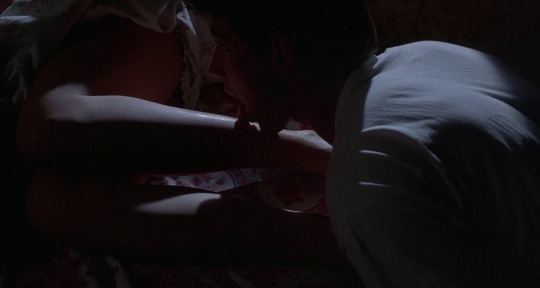

Sweetie - Jane Campion (1989)
#sweetie#1989#jane campion#film#film stills#movie screencap#cinema#movies#directed by women#feminist cinema#fotogrammi
12 notes
·
View notes
Text
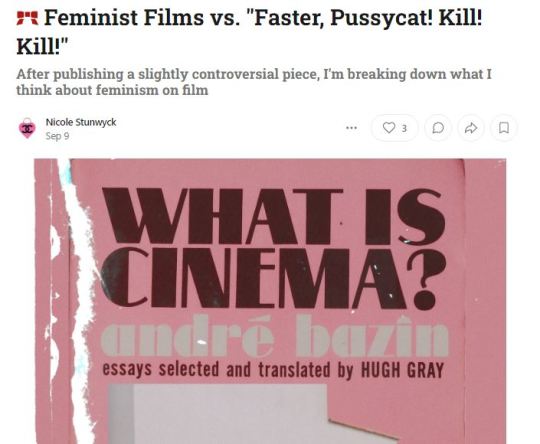


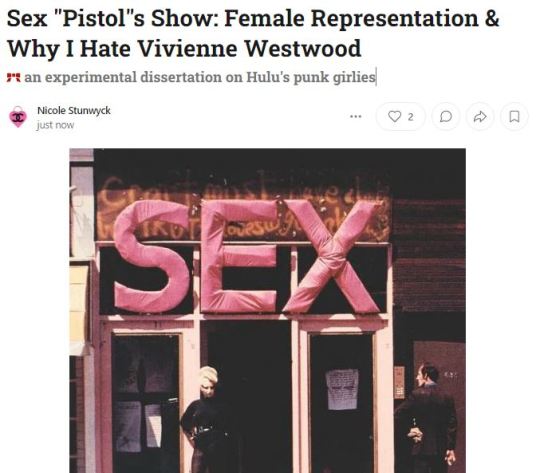
hi! i'm nicole, lady film writer & madonna scholar & blond blogger about town and these are some of my writings 🎀 all of my feminist film essays and posts r 100% free on substack and i publish a new piece weekly so consider subscribing! below some links <3 #BRINGBACKBLOGGING
Sex "Pistol"s Show: Female Representation & Why I Hate Vivienne Westwood
🎀 Feminist Films vs. "Faster, Pussycat! Kill! Kill!"
💝 5 Short Films I Recommend
the horrors of making movies as a schoolgirl 🎀
Barbie Breakfasts in Gregg Araki’s "The Living End" (1992) 🎀💝
#would mean the world if u reblogged </3#pamela rooke#feminist cinema#feminist film theory#sex pistols#pistol 2022#gregg araki#feminist film writing#woman directors#film writing#film writer
19 notes
·
View notes
Text








Chantal Akerman by Micheline Pelletier, 1979
#chantal akerman#female filmmakers#women’s cinema#feminist cinema#arthouse cinema#minimalist cinema#belgian cinema#jeanne dielman#1970s#1970s photography#cinema#cinephile#film
527 notes
·
View notes
Text



Faces (1976), dir. Sue Ford
#Faces#Sue Ford#70s#short film#experimental film#feminist cinema#women make movies#australian cinema
54 notes
·
View notes
Text
"Making #HERstory ; She wasn’t kicked out of Eden, She WALKED out”©️ Cali Lili #eVe #Lilith #ComingOut #SustainableMovies ™️ #mybodymychoice #AllFemaleCrew #BLM #LGBTQ #Climate eVe N’ god this female is not yet rated ™☯️ #innovator #ChickLit #ChickFlicks
2023 / 2024 Update : Cali’s innovative work is included in upcoming documentaries and Cali Lili Indies is preparing Cali’s next movie & album (TBA)
Movie Review 2022 Times Square Chronicles
Cali Lili’s : Eve N God This Female Is Not Yet Rated (with original soundtrack)
Movie Review 2022 Times Square Chronicles
Cali Lili ‘s Oscars 2020 ContendereVe N’god this female is not yet rated
” dream…

View On WordPress
#All female crew#chick flicks#chick lit#Coming Out#coming out day#democracy#director#diversity#female director#feminist cinema#feminist movies#freedom#girlpower#Girls Supporting Girls#handmade#herstory#interracial love#lesbian community#lesbian visibility#lgbtq#lgbtq month#love is love#love wins#My body my choice#surfshack#womanowned#women#women supporting women
3 notes
·
View notes
Text
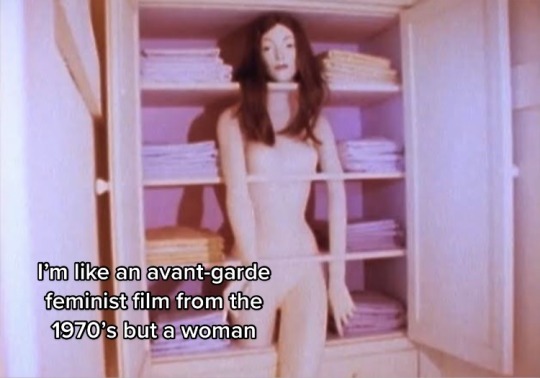
#womanhouse#judy chicago#feminist avant-garde#second wave feminism#girlblogger#coquette#1970’s cinema#feminist cinema#experimental cinema
14 notes
·
View notes
Photo

#Sadie Benning#Pixelvision#cinema#movies#indie movie#indie cinema#black and white#black & white#b & w#feminist cinema
3 notes
·
View notes
Text
I’ve always been drawn to films that allow the power of humiliation to overcome a character; my filmmaking in both ambition and practice have been shaped by my yen to explore this unspoken taboo. And I’ve discovered several role models in quest who shared my goals, my ethos, even my gender. When I looked at the debuts of the femme filmmakers I admired, I found that many of them wrote, directed, and starred in the projects that helped launch their careers. So I did it as well. And I did find some validation with my first feature Actual People (2021), in which I play a “faildaughter,” a young and often middle-to-upper-middle-class femme protagonist who is a bit of a virtuoso when it comes to self-humiliation. When confronted with challenges (ones that are notably padded by a level of financial security), the faildaughter will zig when she should zag, have weird and sad sex when she should abstain, and quit like a coward when it’s not even that taxing to persevere (the most popular example is probably Phoebe Waller-Bridge's eponymous Fleabag, whose adventures in incompetence were not only compelling, but relatable).
At the beginning of a filmmaker’s career, there are fewer eyes on their projects and therefore little to no expectations, bringing about the chaotic combination of more creative freedom with few people who want to be involved. This leads to some artists, either brazenly or defiantly, jumping into the role of the “triple threat,” meaning that they write, direct, and star in their own film (I’m co-opting this phrase from theater, in which the term refers to a performer who can act, dance, and sing).
(...)
There’s the argument that in a sexist landscape people don’t necessarily want women to succeed, so it’s easier for a woman to make work that debases herself before someone else can on their own terms. There is perhaps some truth to that, but there’s a big difference between self-flagellation that elicits pity and vulnerability in the name of self-empowerment. These films, which I believe succeed most magnificently when they make me cringe, squirm, die a little inside, and rebirth me into a more receptive and courageous thinker, are definitely not interested in pity. They demand to be on an equal playing field of empathy. The vision feels more sacred, like modern martyrdom. To put yourself so vulnerably on screen, and to do so knowing there is a high possibility of condemnation, is a sacrifice, but at least it’s one that the artist is in control of. Unfortunately, unfairly, maybe being a woman means having a body always on the precipice of some kind of sacrifice, and you can either accept it or let someone else take control of the ritual. The lore of legendary filmmaking is rife with horror stories of women who allowed a male director to take control of their body and psyche. They gave themselves up for a vision that was deemed greater than their individual suffering, but the films don’t necessarily honor this unnecessary loss. If a film actually necessitates a sacrifice from a woman, shouldn’t she make it for the sake of her own vision and ideals?
#feminist cinema#cinema#movies#film#film analysis#mubi#quote#citation#male gaze#triple threat#Kit Zauhar#humilitation
1 note
·
View note